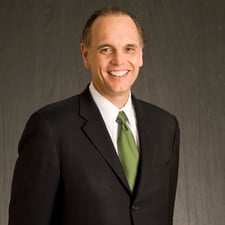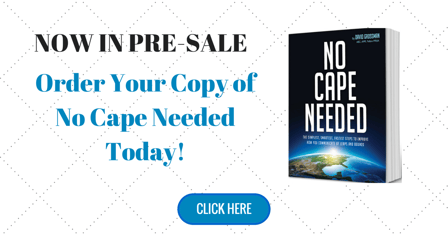Guest Blogger: Mike Fernandez on The Importance of Asking Questions #NoCapeNeeded
In the coming weeks before the launch of my next book, “No Cape Needed: The Simplest, Smartest, Fastest Steps to Improve How You Communicate by Leaps and Bounds,” we will publish a few leadership advice pieces that are featured throughout the book. These posts offer the best advice industry leaders have received in their careers and are a must-read for those wanting to elevate their own performance at work.
Advice
Ask good questions. They can change the world.

Back Story
As a young student at Georgetown University, I was struck by how many times our Jesuit professors would invoke the same eight words: “The questions are more important than the answers.”
At first, my response was, “Yeah, and you’re the ones asking the endless questions.” But as I explored their words more carefully, it became clear to me what the Jesuits meant. They were prompting us to think, to query accepted norms, and push beyond the mundane to get to a better answer that would provide us with a deeper understanding. Think about it. If no one questioned norms or accepted conventional wisdom, we might still believe that the earth is flat and that the universe revolves around us. That might mean that we never know enough to travel to other lands or help others through science and other means. No medicine, no telecommunications, no computers and no internet. No means even to easily communicate with you about this idea from afar.
But as I’ve aged and had the opportunity to lead teams as the chief communications officer at five large U.S.-based companies, I’ve learned the power of inquiry in yet a second way. Bad questions can demotivate a person or a team and good questions can help them achieve greatness.
Outcome
Many executives ‒ in the name of keeping their teams on task and driving for accountability ‒ ask probing questions. Yet too often, those questions can be disempowering. Take these for instance:
- “Why are you behind schedule?”
- “Can’t you make this work?”
- “What’s taking the team so long?”
- “Why don’t you do it this way?”
- “Are you sure we have the right people on this?”
Such questions tend to shut people down, make them defensive and get them focused on not making mistakes, as opposed to playing to win. Telling people what to do is never as effective as asking good questions that help your employees discover what is best to do.
Whether it is getting a team focused on a major project, creating a new online tool, or navigating a crisis, I’ve found that guiding with questions is much more effective. In that kind of environment, employees are empowered, share ownership and responsibility for getting things done well, are more creative and innovative, and take greater pride in their work. By asking the right questions, we can help them remove mental blocks and refocus them on the possibilities and opportunities. Better questions, depending on the circumstances, might be:
- “What are the benefits we are striving for here on behalf of (pick a valued stakeholder customer or otherwise)?”
- “What are you most pleased with thus far?”
- “What additional help or resources might be helpful to bring this project
to closure?” - “Are there other uses for what you and your team are creating here?”
- “What key things need to happen for you to meet with your objectives?
- “How can I help?”
This kind of open questioning has helped Cargill leaders transform our relationships with employees and our clients. We’re all learning from the wisdom and the power of the Jesuits: the questions are indeed better than the answers.
-----
About Mike Fernandez
Mike Fernandez is a Corporate Vice President a Cargill, where he leads a team of highly engaged professionals engaged in brand and marketing, communications, government relations, global issues management, and corporate social responsibility. Cargill is the world’s largest family-owned company with more than 143,000 employees in 67 countries providing food, agriculture, industrial and financial products and services to help its customers across the world thrive and feed the planet.


Comments on this post